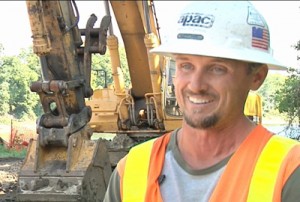Everyone knows what happens to a car when it runs out of fuel. Nevertheless, the same cannot be said about the Highway Trust Fund, which at current funding levels will be $17 billion short of money for the 2010 fiscal year that starts next month.
Minnesota Democrat James Oberstar’s sweeping bill to reform Transportation policy and fix the bankrupt Highway Trust Fund has been blocked by the Obama Administration, so the U.S. Chamber of Commerce, among others, is pushing to renew the existing bill for six more years.
Virtually everyone agrees that our roads, highways and bridges need more maintenance and rebuilding, but a depressed economy and soaring budget deficits make politicians reluctant to address the problem.
In addition, the gang that lives in state along the banks of the Potomac is much better at passing out money for earmarks and pet programs, than they are at finding ways to pay for them. That’s why the Trust Fund is under funded in the first place.
The problem with renewing the existing bill is that it doesn’t contain adequate taxes to support the work required to keep roads repaired. The gasoline tax of 18.4 cents a gallon that goes toward roads has not been raised in 15 years. And, if you’ve been driving through those years, you know what has happened to our highways. About 61,000 miles of our National Highway System are now in poor to fair condition, and 152,000 bridges – 25% — are “structurally deficient.”
Well, things could get worse. The easy political position given circumstances right now is to renew the existing law, without increasing fuel taxes.
However, the numbers do not work. An estimated $235.7 billion (FY 2010-FY 2015) will be raised, but existing transportation programs cost $326.1 billion during the same period. And this doesn’t catch up with decades of neglect.
The Obama Administration kicked the problem down the road as Congress recessed this summer by moving $7 billion more in funding into the Trust Fund so that it can get by for the time being.
As always, the question of increasing taxes revolves around who pays and who benefits. To fix the Trust Fund, Federal gasoline taxes will likely double, at least, from the current level. People are driving less, and the vehicles they are driving are increasingly more fuel efficient. The declining value of the dollar (in part from printing so many of them and borrowing so much from the Chinese) also buys less maintenance and repair with each passing year.
A new study paid for by HNTB, which is in construction project management and stands to benefit from increased spending or suffer if cut, shows just why politicians are stalled on reform.
“Even when considering the possibility of an improved economy (two consecutive quarters of economic growth), 64% of Americans still wouldn’t support a 10-cent increase in the gas tax, which has been endorsed by numerous studies and interest groups, including the U.S. Chamber of Commerce,” the survey says.
“It’s time to realize we aren’t going to find a free fix,” says Paul Yarossi, president of HNTB Holdings Ltd.
“Delays only increase costs and the deterioration of our infrastructure. By addressing the problem through workable funding solutions we will be able generate jobs as well as improve the stability of our mobility and our economy. Let’s stop talking — and start looking at all the options to find the right combination for America’s future,” Yarossi said.
HNTB claims the Trust Fund will actually be broke by October 1.
Among those willing to spend more on long-term transportation improvements in their area, support for higher gas taxes (36%) fell below more tolls (52%) and public transportation fares (45%). Only higher property, income or sales taxes ranked lower (20%) among traditional infrastructure revenue streams.
Well, we will have to wait and see what Congress does when it returns after Labor Day. Since health care reform is going so smoothly, they will have plenty of time to reform our transportation policy. Meanwhile, watch out for potholes. They are increasing in size and numbers.

